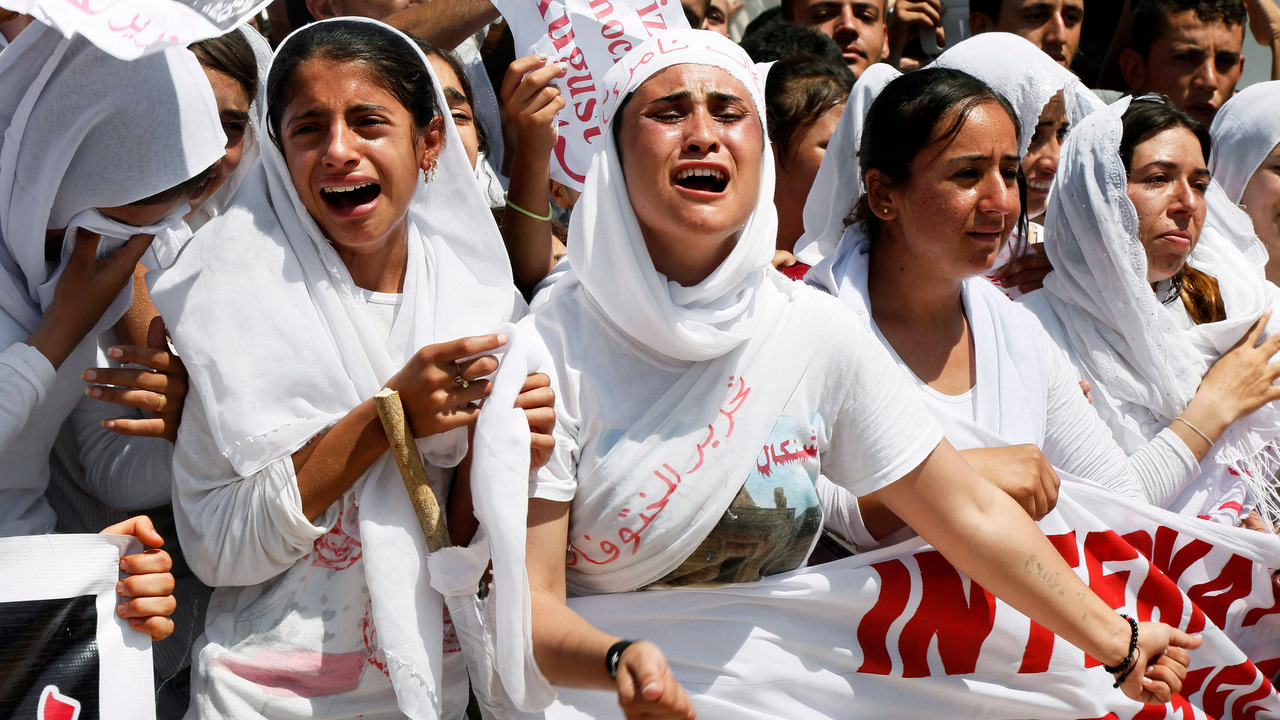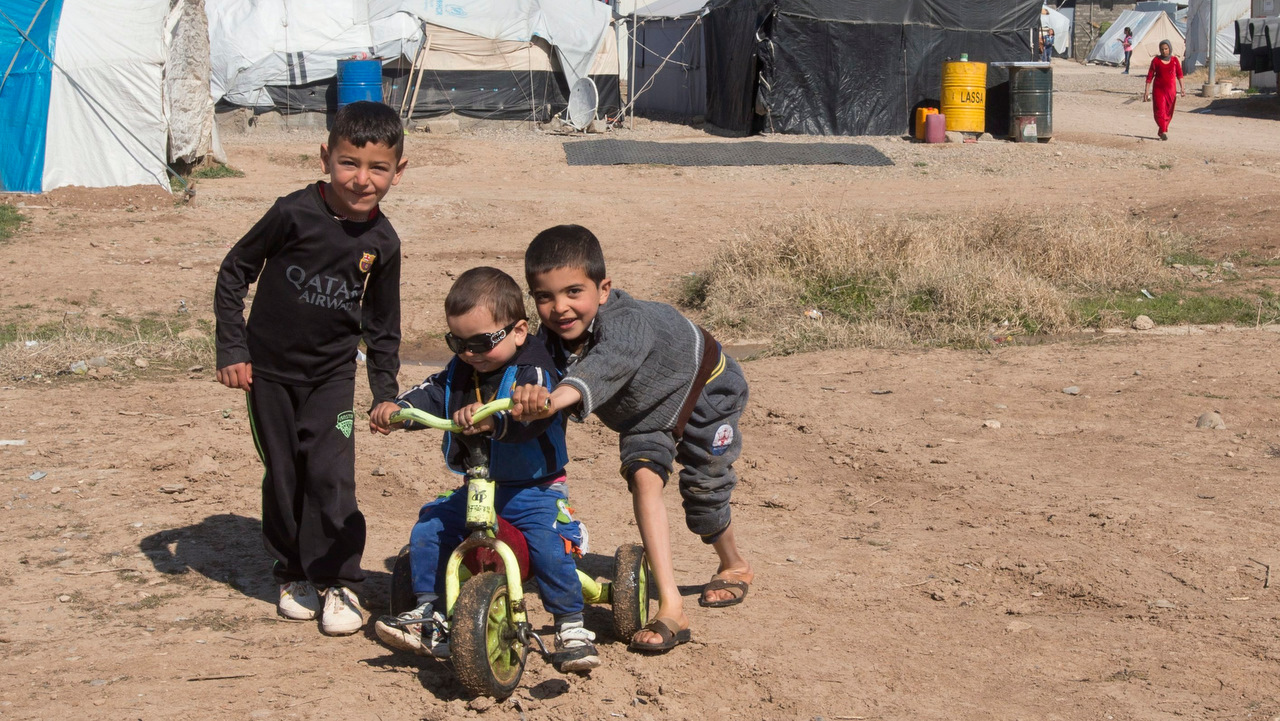Prince Tahseen Said Ali died in the KRH Siloah hospital in Hanover at the age of 85, according to the head of the Iraqi Kurdish region's head of Yazidi affairs, Khairi Buzani.
Born in 1933 in Iraq's northwest Sheikhan district, he was appointed head of the Yazidis at age 11 after the death of his father, who was the previous emir. The Yazidis are a minority whose Iraqi community was ferociously targeted by the Islamic State group.
The Yazidis are a minority whose Iraqi community was ferociously targeted by the Islamic State group.

Yazidi Kurdish women chant slogans during a protest against the Islamic State group's invasion on Sinjar city on 3/8/15. Source: AAP
He later moved to Germany, home of the biggest expatriate Yazidi community.
"He will be buried in the coming days in Iraqi Kurdistan," said Iraqi Yazidi parliamentarian Vian Dakhil.
Dakhil told AFP that before dying, Prince Tahseen had appointed his son, Hazem, to succeed him.
Iraqi officials, including Finance Minister Fuad Hussein and the Kurdistan region's prime minister Nechirvan Barzani, sent condolences to the prince's family on Monday.
The Yazidi faith emerged in Iran more than 4,000 years ago and is rooted in Zoroastrianism, over time integrating elements of Islam and Christianity.
With no holy book and organised into castes, Yazidis pray to God facing the sun and worship his seven angels -- first and foremost Melek Taus, or Peacock Angel.
Of the world's 1.5 million Yazidis, around 550,000 were living in the remote corners of northern Iraq, where their holiest site Lalish lies and where Prince Tahseen was born. In 2014, the Islamic State group rampaged across northern Iraq and seized the Yazidi bastion of Sinjar, near the border with Syria.
In 2014, the Islamic State group rampaged across northern Iraq and seized the Yazidi bastion of Sinjar, near the border with Syria.

A group of Yazidi boys play at a camp for internal displaced persons, in Dohuk, Iraq. Source: AAP
IS fighters slaughtered thousands of Yazidi men and boys, then abducted women and girls to be abused as "sex slaves".
The brutal assault pushed around 360,000 of the Kurdish-speaking Yazidis to flee to other parts of Iraq, including the Kurdish region, in addition to another 100,000 who left the country altogether.
The United Nations has said IS's actions could amount to genocide, and is investigating the jihadist group's atrocities across Iraq.
The Yazidi cause has found a powerful symbol in Nadia Murad, a former IS abductee from Sinjar who escaped and went on to win the Nobel Peace Prize for her activism against sexual violence.
Murad visited Iraq's Yazidi heartland of Sinjar last month, as well as Baghdad and the Kurdish regional capital of Arbil, to draw attention to the plight of thousands of abducted Yazidi girls who are still missing.


